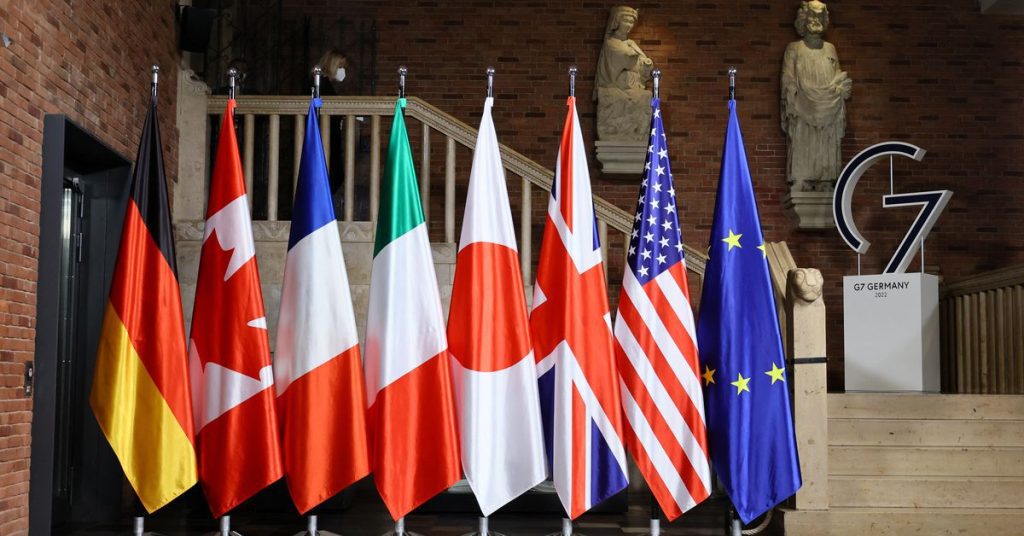
Sources said today, Thursday, that the Group of Seven rich countries and Australia agreed to set a fixed price when finalizing a ceiling on Russian oil prices later this month, instead of adopting a floating rate.
US officials and the Group of Seven nations have held intense negotiations in recent weeks over the unprecedented plan to cap the price of seaborne oil shipments, which is set to come into effect on December 5 – to secure EU and US sanctions aimed at constraining Moscow. The ability to finance its invasion of Ukraine is not stifling the global oil market.
A source from the alliance, who was not allowed to speak publicly, said: “The alliance has agreed that the price cap will be a flat rate that is regularly reviewed rather than a discount on an index.” “This will increase market stability, simplify compliance, and reduce the burden on market participants.”
Several sources said the initial price has not been set, but it is due in the coming weeks. The source said the coalition partners agreed to review the fixed price regularly and revise it as needed, without revealing further details.
The source added that linking the price as a discount to some indicators would have led to a lot of fluctuations and possible price fluctuations.
A second source familiar with the discussions said the alliance was concerned that a floating rate pegged below the international benchmark Brent crude could enable Russian President Vladimir Putin to manipulate the mechanism by cutting supplies.
Putin could benefit from the floating price system because the price of his country’s oil would also rise if Brent crude rose due to oil cuts from Russia, one of the world’s largest oil producers. The source said the downside to the agreed-upon fixed-rate system is that it will require more coalition meetings and bureaucracy to review it regularly.
US Treasury Secretary Janet Yellen and other G7 officials have argued that the price cap, set to start on December 5 for crude oil and February 5 for oil products, will squeeze funding to Russia without cutting supplies to consumers. Russia said it would refuse to ship oil to countries that set price ceilings.
Shipping services are eager to see more details about the G7 plan which is due to go into effect in a month.
Fixed caps on prices could enable insurers to extend contracts with greater confidence and start new ones without fear of price adjustments by countries buying Russian oil, which could expose insurers to sanctions.
There was no immediate comment from the Treasury or the embassies of members of the coalition, which includes the wealthy Group of Seven, the European Union and Australia.
Separately, the Wall Street Journal reported on Friday that the United States and its allies have agreed on more details on which Russian oil sales will face a price cap.
The countries specified that each shipment of Russian seaborne oil would be subject only to the price ceiling when it was first sold to a buyer on land. Reuters was not immediately able to verify the news, which was quoted by well-informed sources.
(Reporting by Andrea Shalal and Timothy Gardner in Washington and Noah Browning in London); Editing by Heather Timmons and Matthew Lewis
Our criteria: Thomson Reuters Trust Principles.

“Travel specialist. Typical social media scholar. Friend of animals everywhere. Freelance zombie ninja. Twitter buff.”





More Stories
Taiwan is preparing to face strong Typhoon Kung-ri
Israel orders residents of Baalbek, eastern Lebanon, to evacuate
Zelensky: North Korean forces are pushing the war with Russia “beyond the borders”